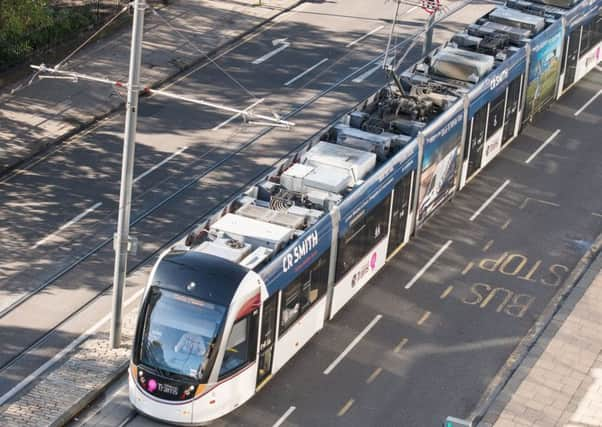SNP hostility to trams '˜green light' for awkward contractors


Former civil servant Damian Sharp said the fact ministers did not support the project meant the companies, like main contractor Bilfinger Berger, were not worried about the consequences of delays and things going wrong.
He told the inquiry: “The whole feel was that Bilfinger were taking comfort from the fact that ministers didn’t want this project, ministers forecast this project would be a disaster, that it would cost too much and if we were to prove them right there will be no political consequences for proving them right.”
Advertisement
Hide AdAdvertisement
Hide AdMr Sharp said part of the original strategy of tram firm TIE and government agency Transport Scotland was for companies to know that behaving well as contractor would put them in a good position when the next round of contracts was awarded.
“Contractors knew that there would be consequences in those next round of contracts if the word got out that they were difficult and awkward and managed the contract for as much money as possible.”
But when ministers withdrew Transport Scotland from the project after the SNP’s failed bid to scrap the project, contractors felt they could be “difficult commercially” and “refuse to start and progress construction with impunity”.
Mr Sharp said: “Refusing to work when you have closed Princes Street is a very public act of contractual dispute. They had no fear ministers would impose sanctions against them.”
Advertisement
Hide AdAdvertisement
Hide AdMr Sharp also told the inquiry, chaired by Lord Hardie, how ministers pressed for an arms-length company to run the tram project because they did not trust the council to do the job.
He said establishing TIE was not an official requirement, but it was made clear the project would not be funded otherwise.
“It was not a condition of grant, but my understanding was there was a discussion between Wendy Alexander, who was the relevant minister at the time, and the head of Edinburgh council Donald Anderson, which said, ‘I’m only going to go ahead with this if you put this into an arms-length vehicle because I don’t trust you that the council itself can deliver’.
“It would have been open to the council to convince Miss Alexander that she was wrong. So it wasn’t an absolute requirement but it was very strong encouragement.”
Advertisement
Hide AdAdvertisement
Hide AdThe council set up TIE in 2002 as an arms-length company to manage several transport initiatives, including the trams, the Edinburgh Airport Rail Link and congestion charging.
Mr Sharp said ministers favoured the arms-length company approach because the city council’s record on delivering transport projects had been “patchy”.
And he cited the City of Edinburgh Rapid Transport (CERT) project for a guided busway which saw only a short stretch built in the west of the city before it was abandoned.
Mr Sharp described how he and colleagues had been summoned to see new Finance Secretary John Swinney within a week of the SNP taking power after the 2007 Holyrood elections.
Advertisement
Hide AdAdvertisement
Hide AdThe party had made clear it wanted to scrap the trams and Mr Sharp said Mr Swinney did not ask for a report on the state of the project.
“They had decided its fate,” he said. “They did not want advice on why it was a good thing. He wanted advice on alternatives and that’s what he asked us to produce.”